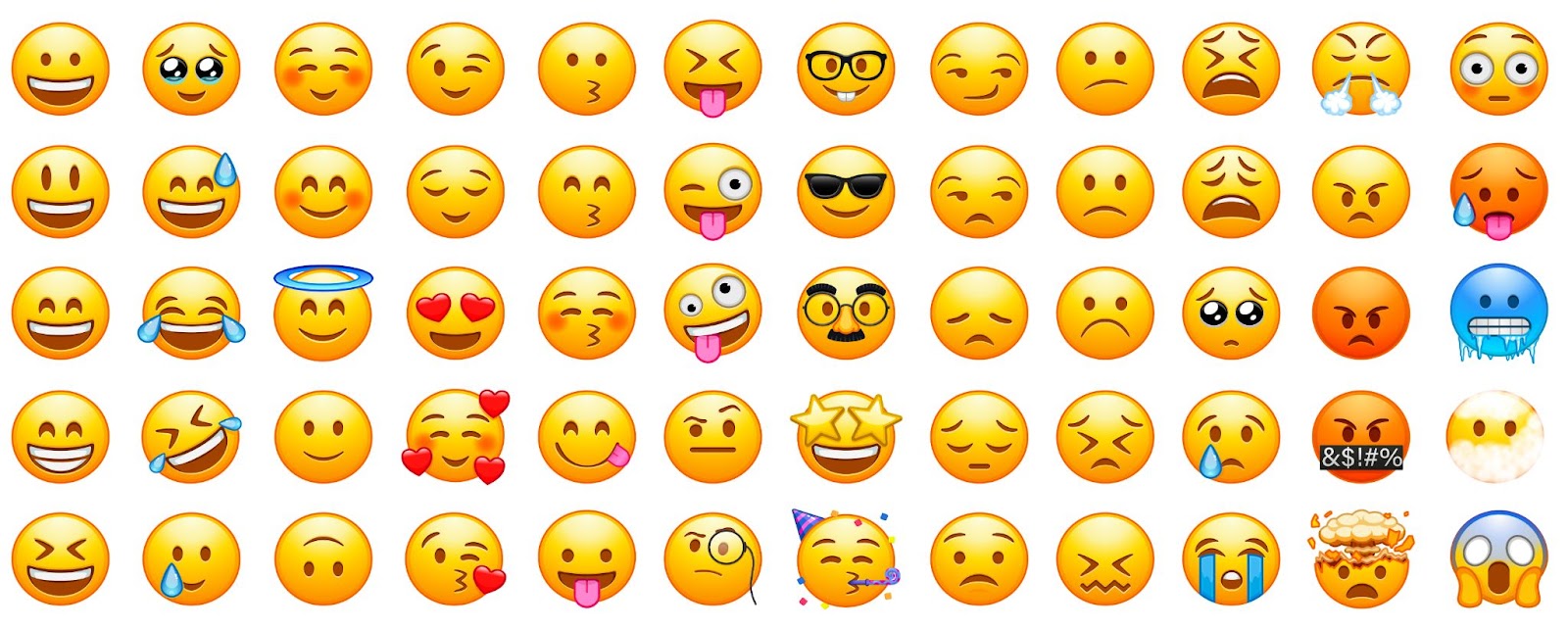The internet constantly evolves, but emojis have become a mainstay on social media. These simple icons have the potential to significantly impact your professional communication online and your digital marketing strategy.
In this blog, we’ll explore practical ways to use emojis effectively across various social media platforms. Whether you’re using them to draw attention to key points, soften messages, or make your posts more engaging, understanding how to use emojis professionally can enhance your social media strategy.
Let’s dive into how you can integrate emojis into your business communications effectively.
Why use emojis?
Emojis offer a range of benefits that can enhance your professional communications on social media platforms. Here’s why incorporating them into your strategy can be advantageous:
Enhanced engagement
Emojis can make your posts more visually appealing and engaging. They break up text-heavy posts, making your content easier to read and more likely to capture attention in crowded social media feeds.
Emotional connection
Emojis help convey emotions and tone, adding a human element to your messages. This can be particularly useful in softening serious posts, expressing joy, or showing empathy, helping to build a stronger emotional connection with your audience.
Increased clarity and context
Sometimes, text alone might not fully convey your message’s nuance. Emojis can provide additional context or emphasize certain points, reducing misunderstandings and making your intentions clear.
Cross-cultural communication
Visuals like emojis transcend language barriers, making your content more accessible to a global audience. This is particularly valuable for brands with an international reach, as it can communicate messages in a universally understandable way.

Boosts click-through rates
Studies have shown that using emojis in social media can increase interaction rates, including likes, comments, and shares. When used strategically in calls to action, emojis can also boost click-through rates, driving more traffic to your website or campaign.
Trend relevance
Emojis keep your brand relevant and relatable, especially to younger audiences who are accustomed to emoji-laden communications. Staying current with how emojis are used can help your brand maintain a modern and approachable image.
Incorporating emojis into your professional social media efforts offers a simple yet effective way to enhance readability, emotional engagement, and overall interaction with your content.
Rules of thumb
Using emojis effectively in professional social media posts involves understanding the context and the audience. Here are some rules of thumb to guide you in using emojis appropriately:
Know your audience
Tailor your emoji usage to fit your audience’s expectations and preferences. If your audience is more formal or traditional, excessive emoji use may seem unprofessional. On the other hand, a younger, more casual audience might appreciate and expect a more playful approach.
Keep it relevant
Use emojis that are relevant to the message you’re trying to convey. Random emojis can confuse your audience and dilute your message. Ensure that the emojis enhance your content rather than distract from it.
Use sparingly
While emojis will make your posts more engaging, overuse may make your messages seem less serious or cluttered. Use them sparingly to highlight key points or add tone to your communication.
Choose wisely
Select emojis that are widely recognized and avoid those that might have different interpretations to prevent miscommunication. Stick to simple and clear emojis that directly support or enhance your message.
Consistent tone
Ensure that the emojis match the tone of your content. If you’re sharing a serious post, it’s inappropriate to use overly casual or comical emojis. The tone of the emoji should complement the message, not contradict it.
Cultural sensitivity
Be mindful of cultural differences in emoji interpretation. An emoji that’s considered positive in one culture may have a different connotation in another. This is particularly important for brands with a diverse international audience.
Test and learn
Pay attention to how your audience responds to different emojis and adjust your strategy accordingly. Analytics will provide insights into which emojis perform best in terms of engagement and conversion.
Update regularly
Stay updated with new emojis and changes in their popularity and usage. This will help keep your content fresh and in line with current trends.
By following these guidelines, you can use emojis to effectively enhance your communication on social media, ensuring that your use of visual language aligns with your brand’s voice and audience expectations.

Using emojis on different platforms
Emojis can significantly enhance your engagement on various social media platforms, but their effective use will vary based on the specific norms and features of each network. Here’s how to tailor your emoji usage to some of the most popular social media platforms:
Emojis on Facebook help personalize your posts and responses, making interactions seem more relatable. They are particularly effective in CTAs, as they draw attention and can increase click-through rates. Use emojis to add a fun or warm tone to your messages, encouraging more likes and comments.
X (formerly known as Twitter)
The character limit on X makes emojis incredibly useful for conveying emotions or substituting entire words. They allow you to say more with less, highlight key points, and make your tweets stand out in a crowded feed.
As a visually-driven platform, Instagram is ideal for expressive emoji use in captions, comments, and Stories. Emojis complement the storytelling in your posts, add personality to your captions, and encourage interactions in a light-hearted way. They can also serve as bookmarks or bullet points to make your text more readable.
While more conservative than other platforms, LinkedIn still accommodates the use of emojis to a certain extent. Use them to soften the tone of your messages or to add a subtle personal touch to otherwise formal content. Stick to more conservative and professional emojis, like the handshake or briefcase.
Snapchat and TikTok
These platforms attract a predominantly younger audience who are accustomed to using emojis extensively. On Snapchat, you can use emojis creatively in snaps or for interactive responses. TikTok also allows emojis in video captions, where they can serve as hooks or humorous elements to enhance engagement.
YouTube
Incorporate emojis in your video titles and descriptions to make them more engaging and noticeable. Emojis help convey the emotion or theme of your video at a glance, potentially increasing views and engagement. Be sure to choose emojis that are directly relevant to the video content to avoid misleading viewers.
So, there you have it.
Now, you know how to use emojis on social media to elevate your content, improve your strategy, and connect with your audience.
Work with Revity as your digital marketing agency
Ready to elevate your social media strategy and ensure your content resonates with your audience?
Reach out to Revity Marketing Agency. Our team of experts is equipped to help you navigate the intricate landscape of digital marketing, from optimizing emoji use in your professional communications to enhancing overall engagement and conversion rates. Don’t just keep up with the trends — set them!
Contact Revity today, and let’s craft a tailored marketing strategy that truly represents your brand and speaks to your audience. Let us help you make every post count.





